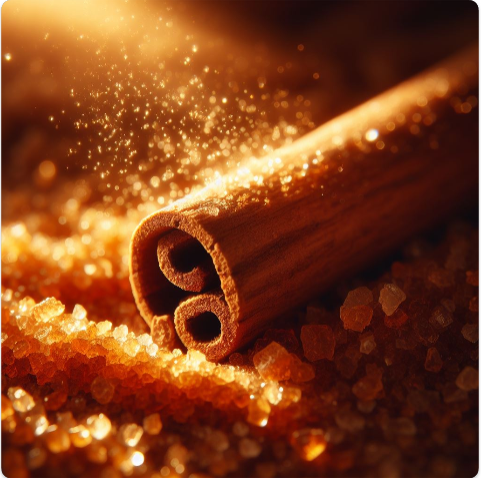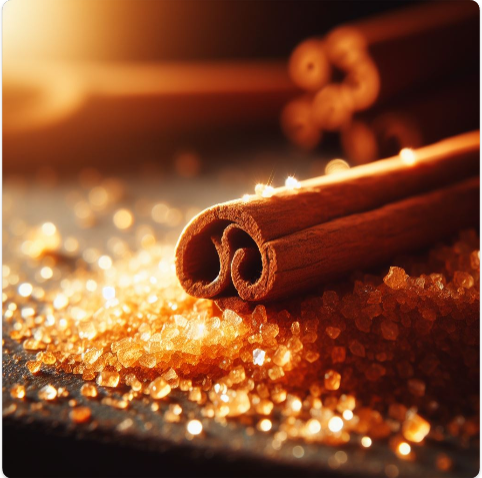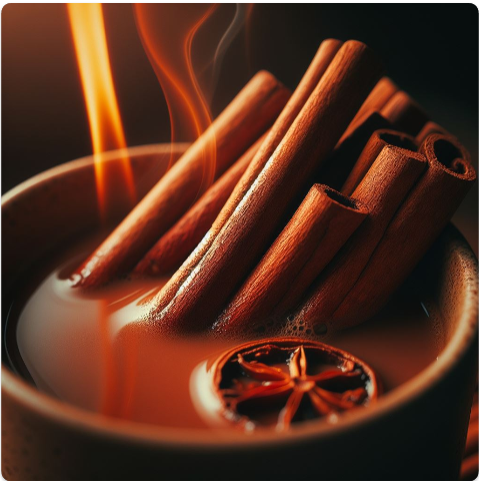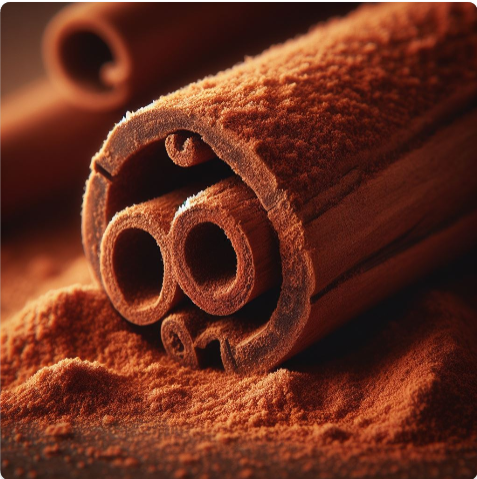Cassia Cinnamon
Cassia cinnamon is a widely used spice, cherished for its strong, spicy flavor, making it a cornerstone in many cuisines and recipes. Originating from the Cinnamomum cassia tree, it features a bold taste and a high concentration of cinnamaldehyde, contributing to its deep, aromatic profile. While it offers notable health benefits, the higher coumarin content in Cassia cinnamon necessitates careful consumption. Its distinct flavor and versatility in cooking solidify its status as a beloved spice in both traditional and modern culinary practices.
Description
Cassia cinnamon, derived from the inner bark of the Cinnamomum cassia tree, predominates in the global market as the more commonly encountered type of cinnamon. It is recognized for its bold, spicy warmth and is primarily cultivated in China, Indonesia, and Vietnam. The robust, full-bodied flavor of Cassia distinguishes it from its more delicate counterpart, Ceylon cinnamon, making it a preferred choice in many culinary traditions, especially for dishes that demand a pronounced cinnamon profile.This variety of cinnamon presents with a thicker, rougher bark and a darker color than Ceylon cinnamon. When processed into sticks, Cassia cinnamon rolls into a single, thick layer, unlike the multi-layered quills of Ceylon cinnamon. This physical distinction mirrors the difference in their flavor profiles: Cassia offers a stronger, more pungent taste and aroma, attributed to its higher content of cinnamaldehyde, the compound responsible for cinnamon’s distinctive smell and flavor.Cassia cinnamon is a staple in the culinary world, essential in the creation of spice blends, baked goods, and traditional dishes across various cultures. Its potent flavor enhances the taste of stews, curries, and desserts, and it is especially favored in recipes where cinnamon is a key ingredient.Beyond its culinary applications, Cassia cinnamon has been studied for its health benefits, including its potential to regulate blood sugar levels and provide antioxidant support. However, it contains a higher amount of coumarin compared to Ceylon cinnamon, which can be harmful in large doses, advising moderation in its consumption
General Enquiries
There are no enquiries yet.













Reviews
There are no reviews yet.